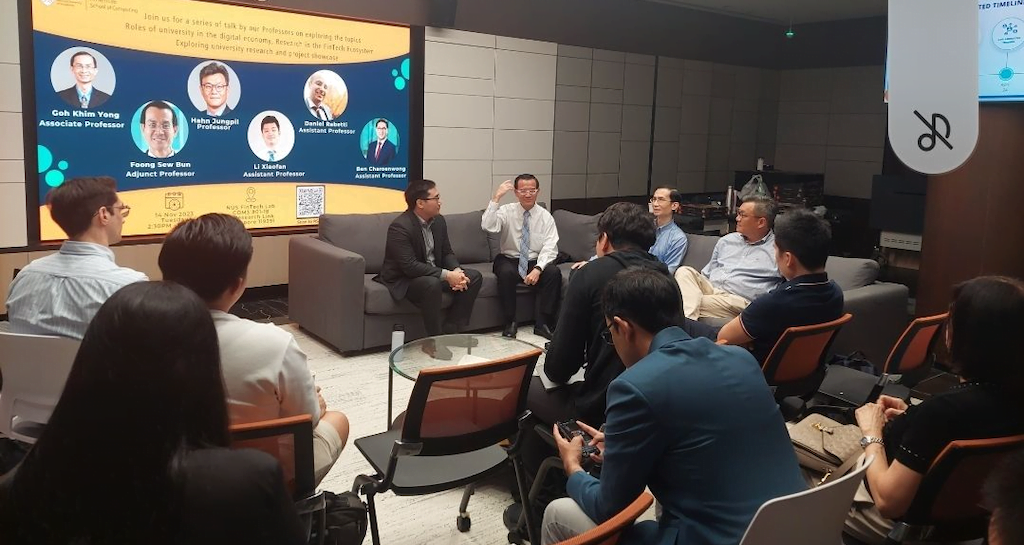
Innovation Lab Crawl @ SFF2023
Had a time moderating a panel on “Breaking Barriers, Building Futures” at the Innovation Lab Crawl at NUS FinTech Lab as part of the Singapore Fintech Festival 2023.
We delved into how the National University of Singapore is reshaping the digital economy. Special thanks to speakers Prof. Khim Yong Goh, Prof. Sew Bun Foong, and Prof. Ben Charoenwong for their critical insights.
Key sharing from this panel discussion:
1a. Redefining the Nexus of Academia and Industry: We are at a critical juncture where academic rigor must meet industry dynamism head-on. The fast-paced fintech sector demands not just keeping up with trends but actively shaping them. It’s essential to develop solutions that are practical, innovative, and sustainable.
1b. Driving Global Impact via Interdisciplinary Collaboration: Fostering cross-faculty partnerships and backing them with significant research grants is crucial to not only promote academic excellence but also to tackle global challenges, and build a progressive, equitable world.
2a. Nurturing Agile Leadership in Finance: Developing adaptable leadership skills for rapidly changing environments is now more important than ever. We must prepare future leaders for the dynamic finance sector, with an emphasis on ‘executive thinking’ and ‘business leadership,’ to cultivate agile, forward-thinking leaders.
2b. Balancing Innovation and Resilience in Finance: In the banking sector, the critical balance between innovation and resilience cannot be overstated. Safely navigating risks through adaptive and resilient systems is key, and academia’s role in policy and research support is vital to create secure yet innovative programs within an effective regulatory framework.
3a. Intersecting Fintech and Digital Media for Informed Decision Making: Combating misinformation and investor sentiment manipulation at the intersection of fintech and digital media is of paramount importance. Creating content that not only aims for financial gain but also educates and guides investment decisions is a crucial part of leveraging academic research for societal benefits.
3b. Expanding Financial Market Participation: Addressing the limited financial market participation, especially in areas with undiversified wealth, is an urgent matter. Leveraging technology to enhance financial education and reduce biases, and focusing on fraud detection, are key steps toward financial inclusion. Bridging academic insights with industry needs for practical, rigorous solutions are essential to cater to the unbanked globally.
